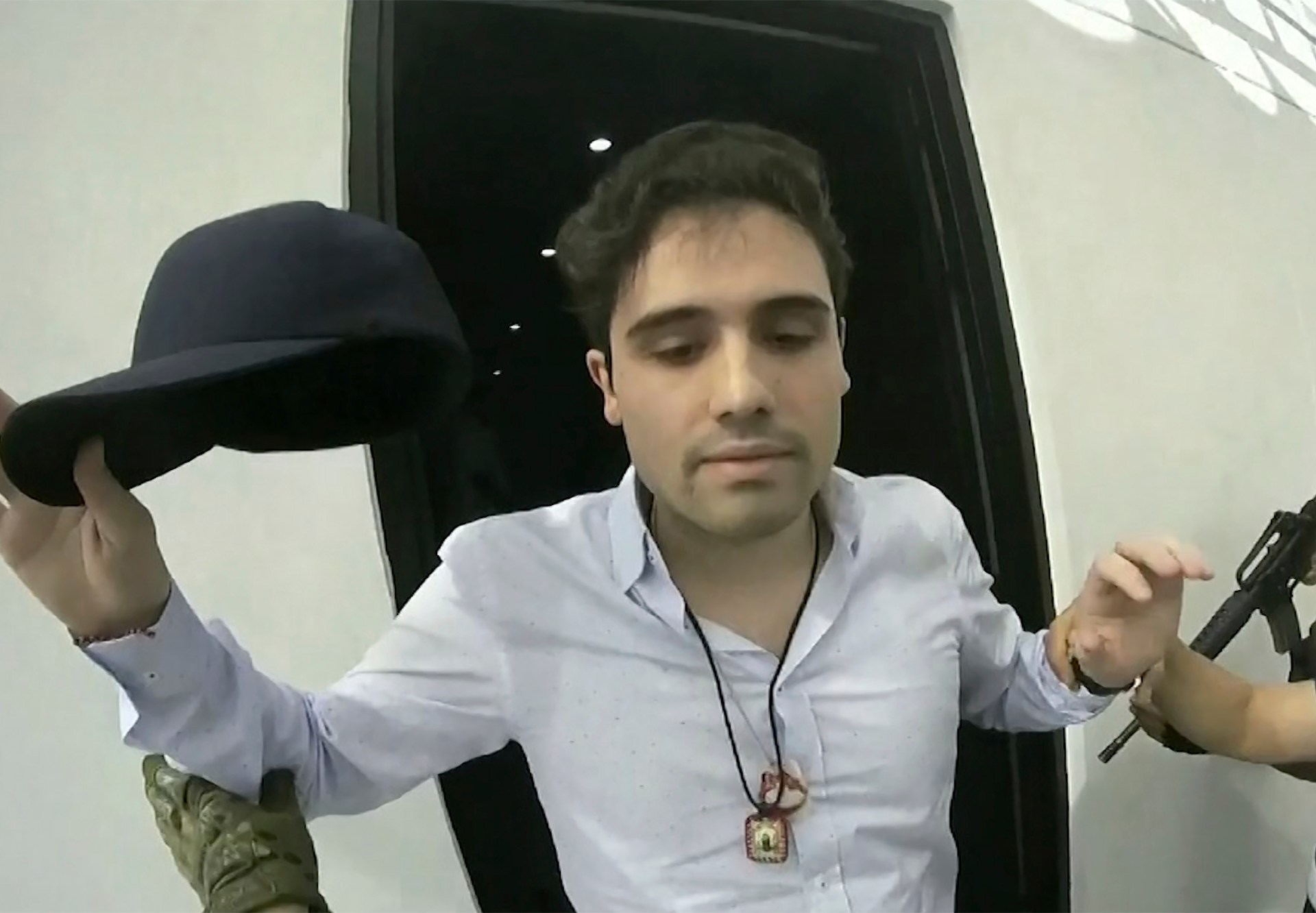US targets El Chapo sons, Chinese workers in sweeping drug action
United States authorities have targeted four sons of the notorious Mexican drug lord El Chapo – known as the “Chapitos” – as well as individuals connected to Chinese chemical firms in a sweeping action meant to address fentanyl trafficking.
On Friday, US Attorney General Merrick Garland called the drug enterprise run by the Mexican Sinaloa Cartel the “largest, most violent, and most prolific fentanyl trafficking operation in the world”.
Deputy Attorney General Lisa Monaco said the indictments “target every element of the Sinaloa Cartel’s trafficking network” as part of what she called a “relentless campaign to disrupt the production, the distribution, the trafficking of fentanyl”.
Officials said the Sinaloa cartel has been led in recent years by Ivan Guzman Salazar, 40, Alfredo Guzman Salazar, 37, Joaquin Guzman Lopez, 36, and Ovidio Guzman Lopez, 33 – all sons of notorious leader Joaquin Guzman Loera, also known as “El Chapo”, who is currently serving a life prison sentence in the US.
Three of those sons, Ivan, Alfredo, and Joaquin, remain at large, while Ovidio was arrested by Mexican authorities in January. He remains in custody pending his extradition to the US.
All four were charged along with 24 others with fentanyl trafficking, weapons and money, among several other charges, which were brought forth in three separate federal jurisdictions: The Southern District of New York, the Northern District of Illinois, and the District of Columbia.
The individuals charged included “manufacturers and distributors” of the cartel’s fentanyl, “managers” of its armed security apparatus, and money launderers, as well several men identified as employees of companies in China “that manufacture fentanyl precursor chemicals”, authorities said.
Speaking at a news conference on Friday, US Drug Enforcement Agency Administrator Anne Milgram said the Sinaloa cartel expanded into the fentanyl trade when El Chapo’s sons took over.
“Let me be clear that the Chapitos pioneered the manufacture and trafficking of the deadliest drug our country has ever faced and they are responsible for the massive influx of fentanyl into the United States,” she said.
The United States is offering rewards leading to the arrests or convictions of 27 fentanyl traffickers. Today’s actions demonstrate the resolve of the United States to promote accountability for criminals who perpetuate illicit fentanyl activity.
— Secretary Antony Blinken (@SecBlinken) April 14, 2023
“As a direct result of their actions, we have lost hundreds of thousands of American lives,” she said.
Fentanyl is currently the “leading cause of death for Americans ages 18 to 49”, according to the US government. The drug has fuelled an opioid epidemic, with fatal overdoses increasing by about 94 percent between 2019 and 2021.
Milgram further detailed what she described as a brutal campaign by the Chapitos to boost business and “get Americans hooked”, including by adding the drug to cocaine, heroin, or illegal methamphetamines, or by disguising it as pills similar to prescription drugs.
“To dominate the fentanyl supply chain the Chapitos kill, kidnap and torture anyone who gets in the way,” Milgram said. “In Mexico, they fed their enemies alive to tigers, electrocuted them, waterboarded them, and shot them at close range with a 50-calibre machine gun.”
The Department of State on Friday also announced up to $56m in rewards for information leading to the capture of the accused.
The DOJ indictments accompanied the latest series of sanctions against Chinese firms and individuals identified as chemical suppliers to fentanyl makers.
The Department of the Treasury on Friday named two China-based firms, which it said contributed or attempted to contribute to “activities or transactions that have materially contributed to, or pose a significant risk of materially contributing to, the international proliferation of illicit drugs or their means of production”.
Among those sanctioned was Ana Gabriela Rubio Zea, who the department described as a “Guatemala-based broker” of the chemical precursor.
Officials said Rubio Zea used “her expertise and contacts” to evade detection by customs officials, at times disguising the chemicals in food containers.
She was also charged in the DOJ indictment.




